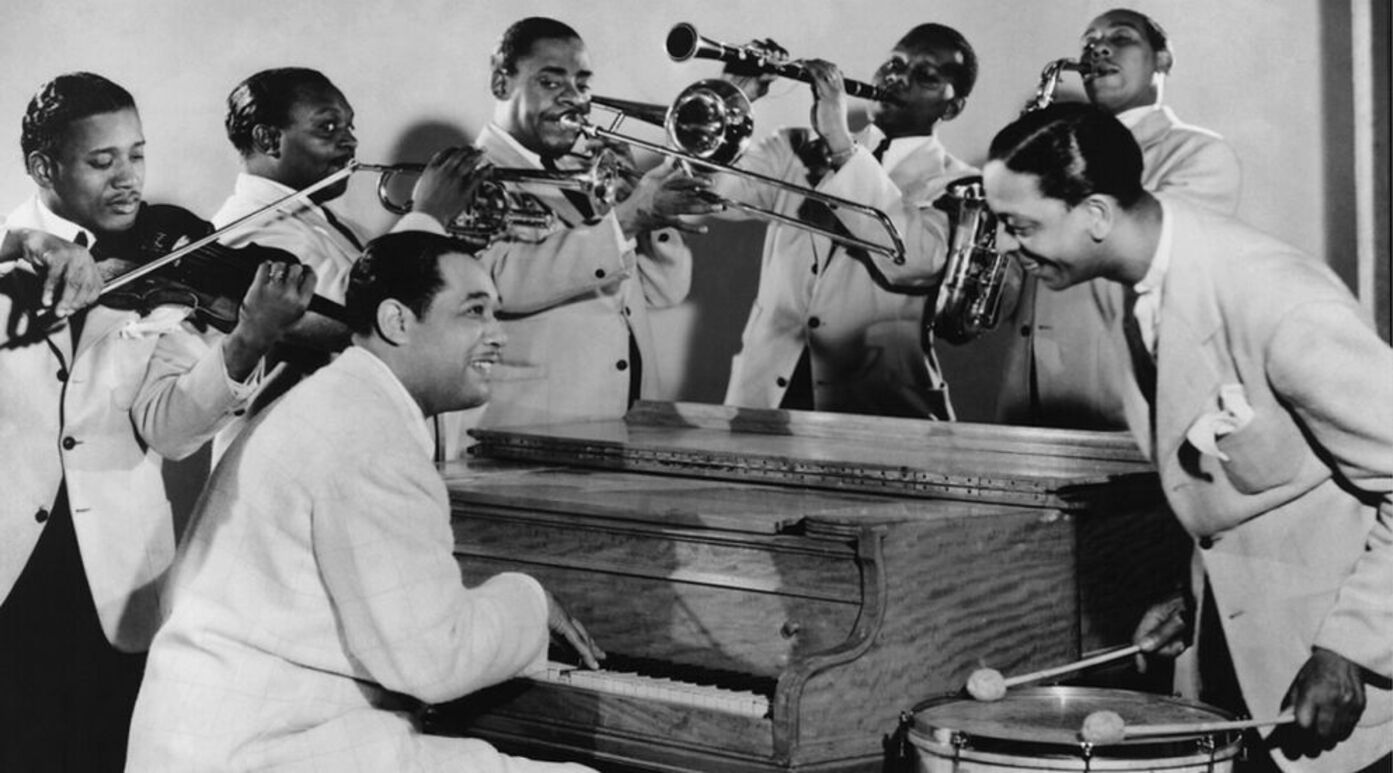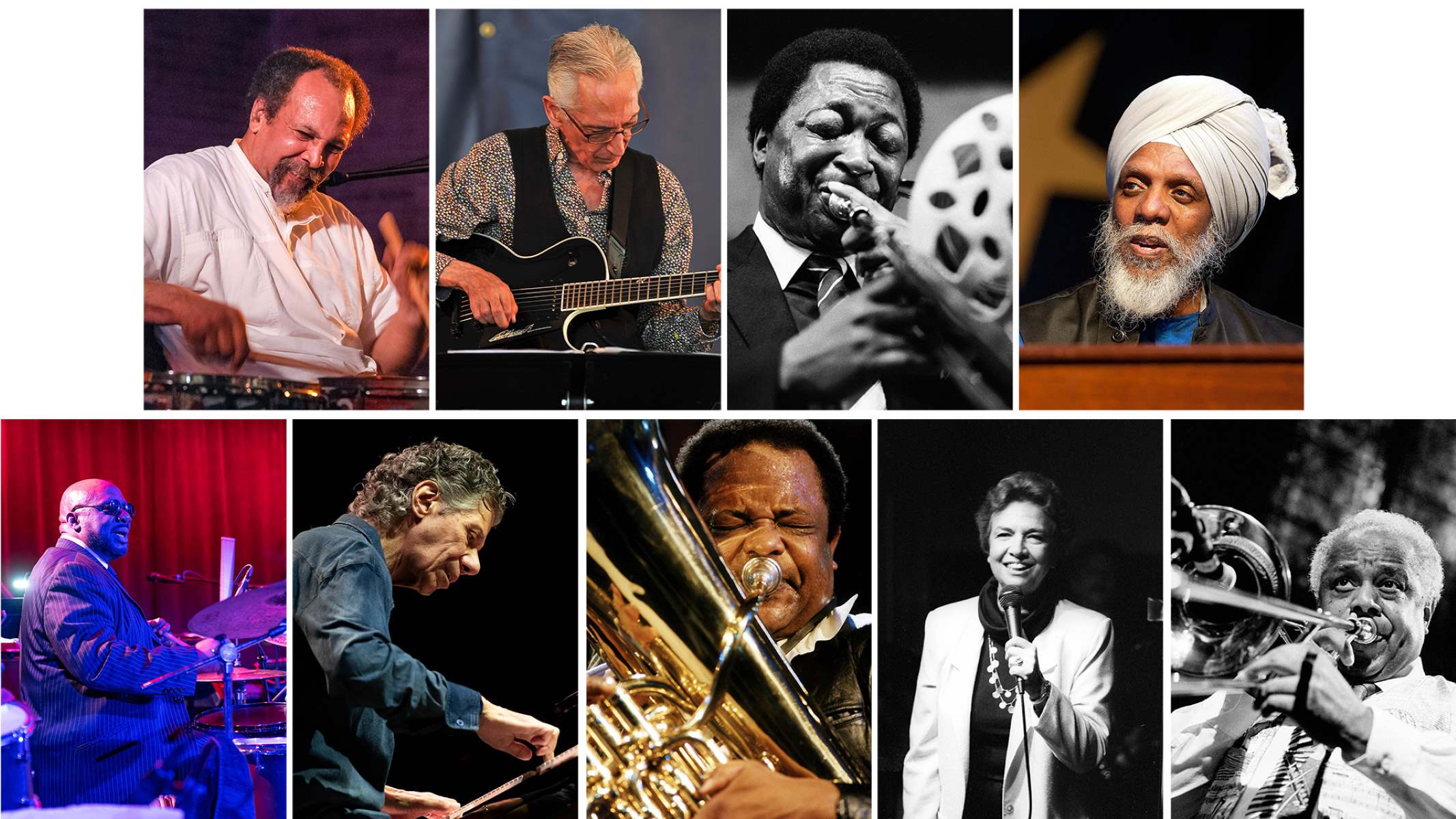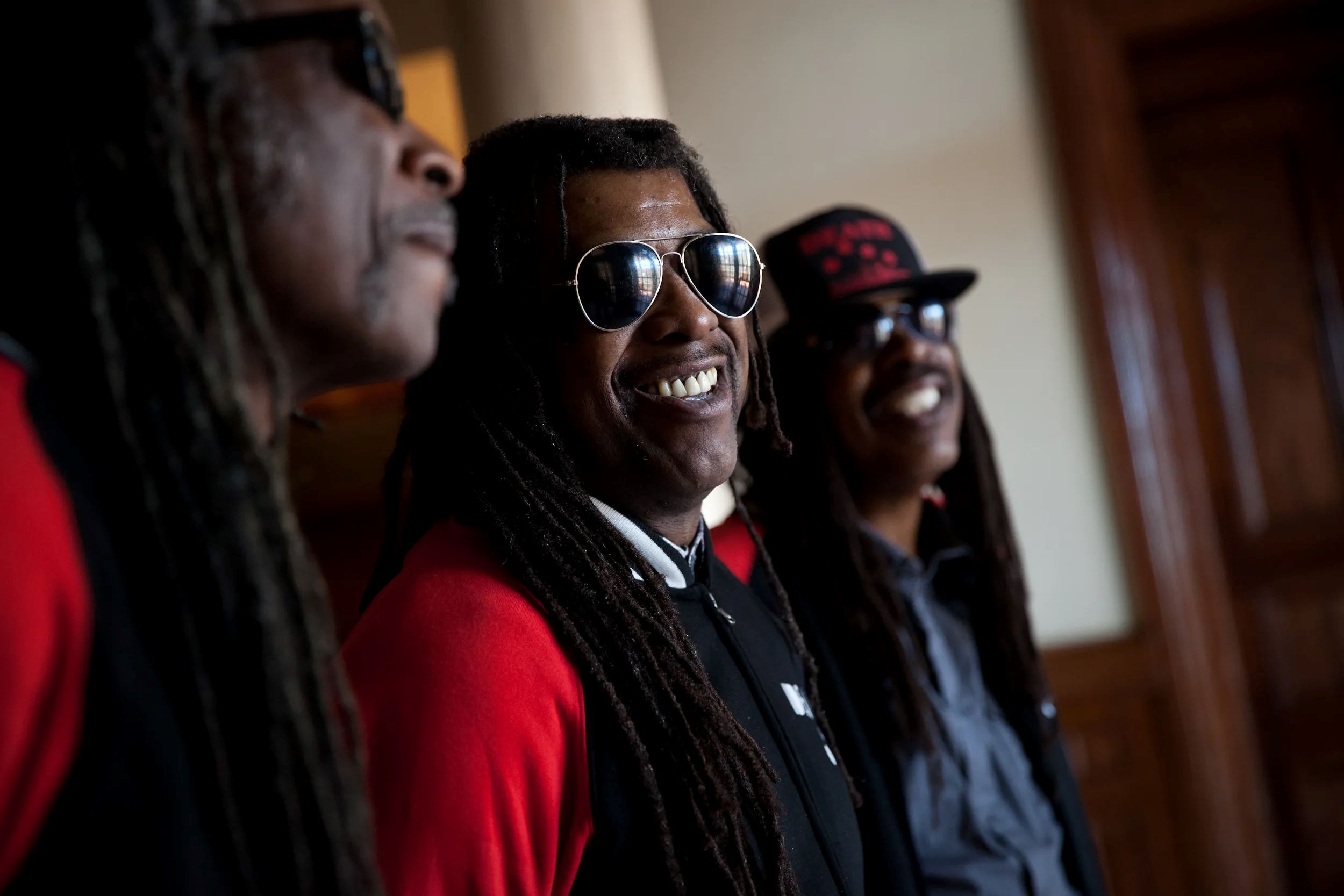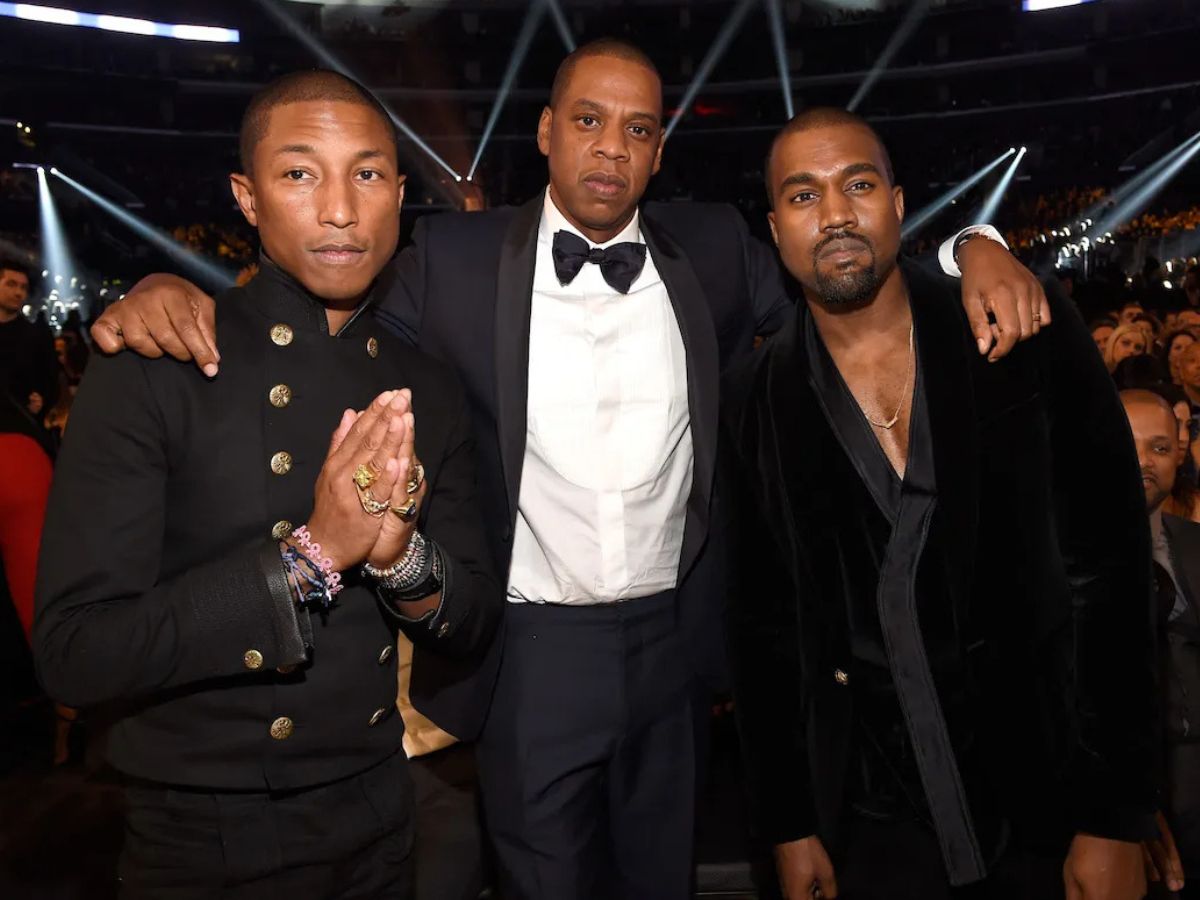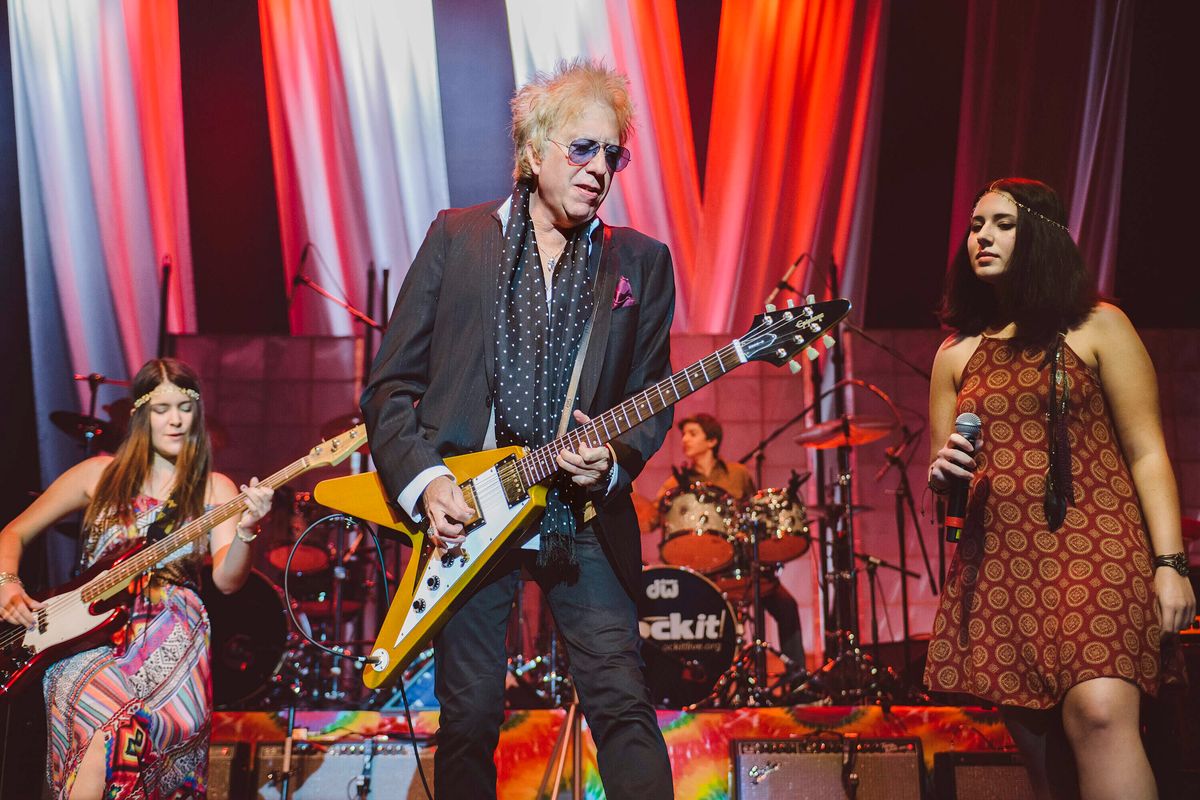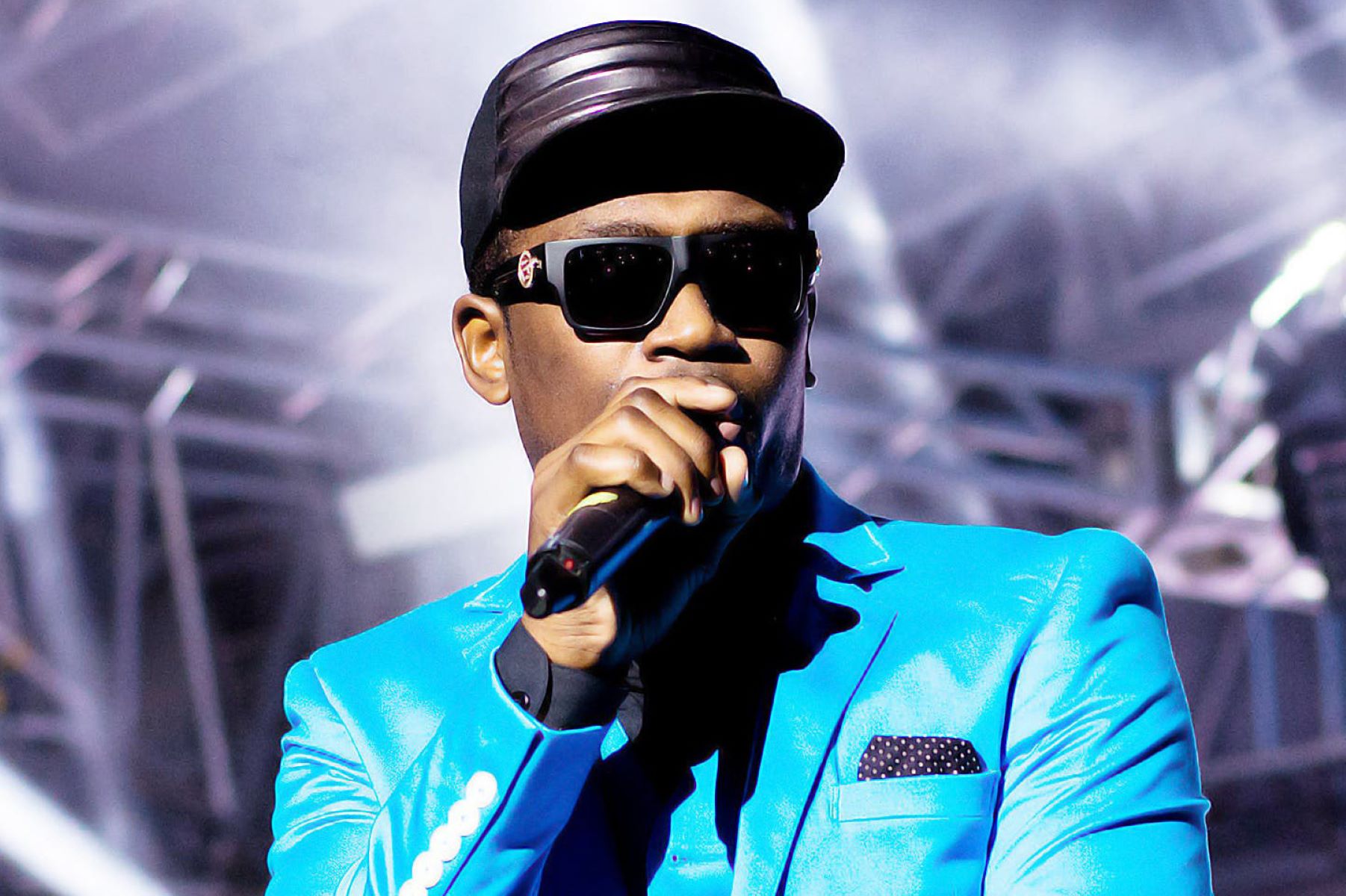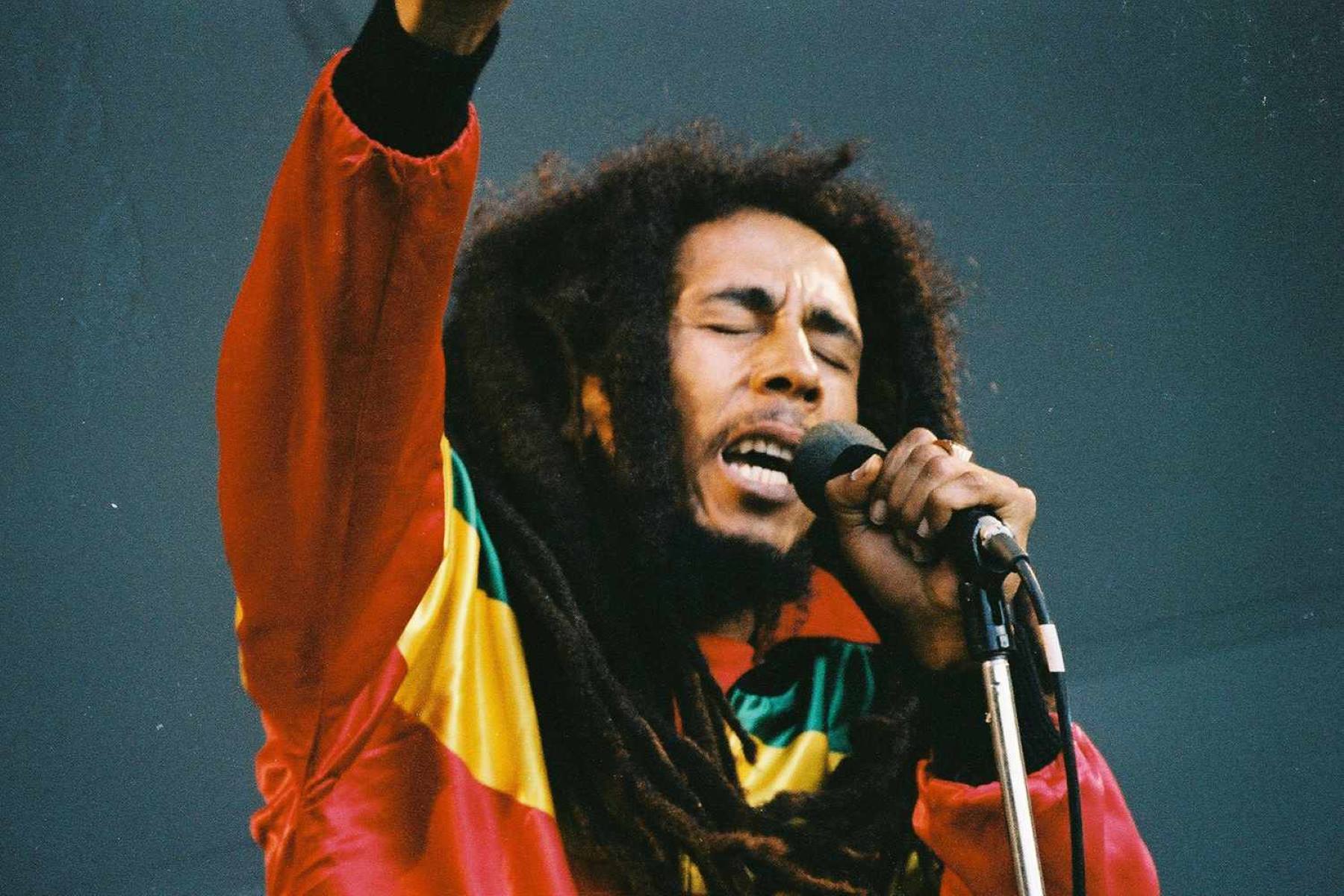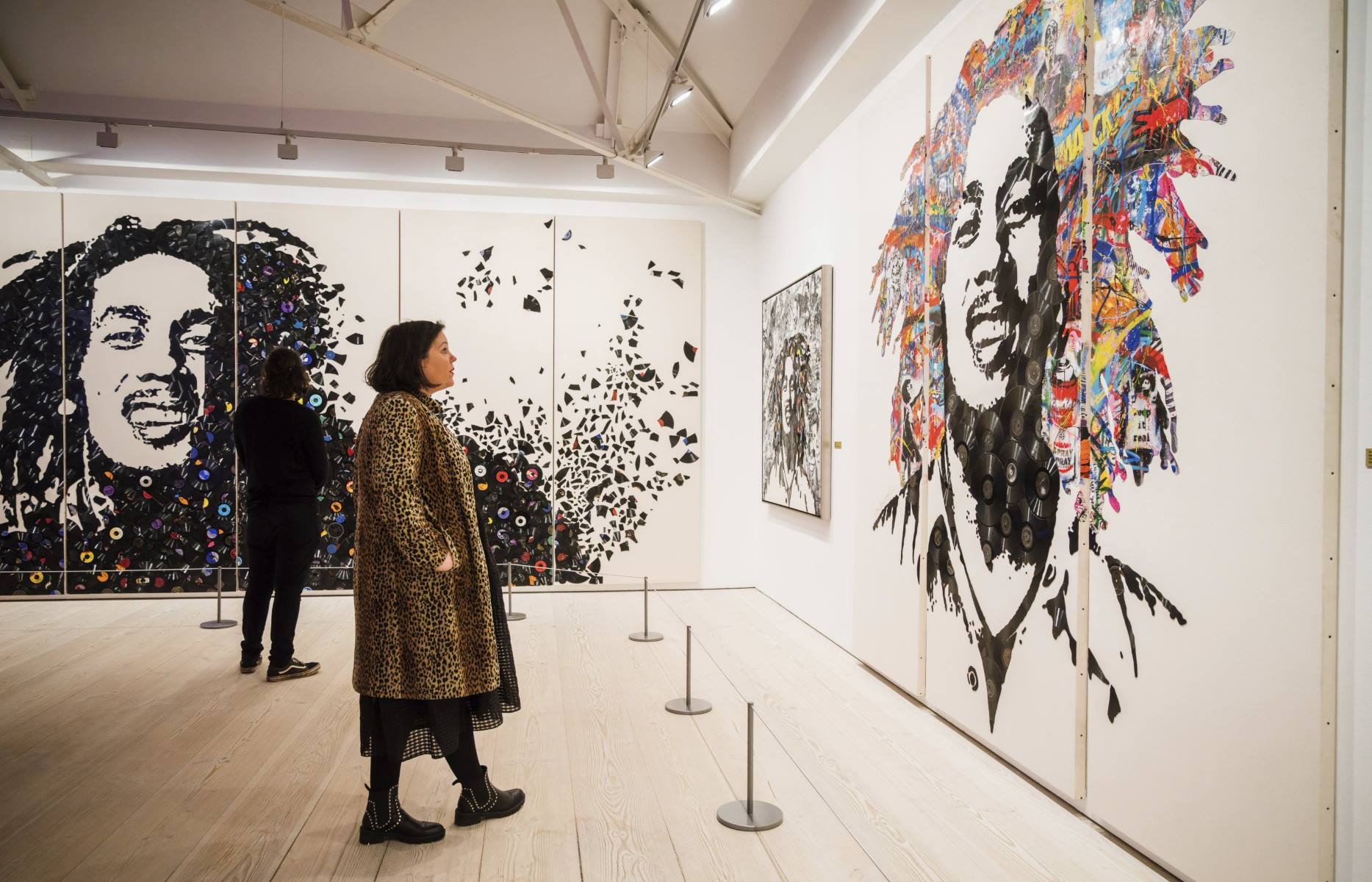

Reggae
Who Is The Most Popular Reggae Artist
Modified: February 18, 2024
Discover the most popular reggae artist and immerse yourself in the captivating world of reggae music, from its roots to its influential artists.
(Many of the links in this article redirect to a specific reviewed product. Your purchase of these products through affiliate links helps to generate commission for AudioLover.com, at no extra cost. Learn more)
Table of Contents
Introduction
Reggae music is a genre that originated in Jamaica in the late 1960s. It is known for its distinctive rhythm, soulful melodies, and powerful messages. Over the years, numerous talented artists have emerged in the reggae scene, captivating audiences around the world with their unique styles and memorable performances.
In this article, we will explore some of the most popular reggae artists of all time. These artists have not only made significant contributions to the genre but have also garnered immense popularity both within and beyond the reggae community.
Reggae music has a rich history, rooted in the cultural and political context of Jamaica. It emerged as a form of expression, with lyrics addressing social issues, spirituality, love, and the struggles of everyday life. From its early beginnings to the present day, reggae music continues to resonate with people from all walks of life.
Each artist on our list has left an indelible mark on the reggae genre and has achieved great success in their careers. From the legendary Bob Marley to the contemporary hitmaker Damian Marley, these artists have played a pivotal role in popularizing reggae globally.
Join us on this journey as we delve into the world of reggae music and explore the lives and music of some of the most beloved and influential reggae artists of all time.
Bob Marley
Bob Marley is undoubtedly one of the most iconic figures in reggae music. Born in Jamaica in 1945, Marley’s music had a profound impact on the world, transcending borders and spreading messages of love, unity, and social justice.
Marley’s career took off in the 1970s with his band, The Wailers, which included Peter Tosh and Bunny Wailer. Together, they created some of the most timeless reggae tracks, such as “No Woman, No Cry,” “Exodus,” and “Redemption Song.”
Marley’s music was characterized by his powerful vocals, heartfelt lyrics, and infectious melodies. He seamlessly blended elements of reggae, ska, and rocksteady, creating a sound that resonated with millions of people worldwide.
In addition to his musical prowess, Marley was an influential figure in promoting peace and social justice. His songs often tackled political and social issues, shedding light on the struggles faced by marginalized communities.
Tragically, Marley’s life was cut short in 1981 when he passed away at the age of 36 due to cancer. However, his impact on reggae music and popular culture continues to be felt to this day.
Bob Marley’s music and legacy have transcended generations, and his songs continue to inspire and uplift listeners across the globe. He remains an enduring symbol of unity, love, and the power of music to bring about positive change.
Bob Marley’s influence is undeniable, and his contributions to reggae music have cemented his status as a true legend in the genre.
Peter Tosh
Peter Tosh, born Winston Hubert McIntosh in Jamaica in 1944, was a talented musician and one of the founding members of The Wailers alongside Bob Marley and Bunny Wailer. While Marley became the face of the group, Tosh’s contributions to the reggae genre are equally notable.
Tosh was known for his powerful voice, fiery lyrics, and unparalleled stage presence. His music often challenged the status quo and highlighted the struggles of the oppressed. Songs like “Legalize It” and “Equal Rights” became anthems for social change and helped shape the identity of the reggae movement.
What set Tosh apart was his uncompromising stance on political and social issues. He fearlessly spoke out against injustice, advocating for equal rights and opportunities for all. Tosh’s dedication to these causes earned him the respect and admiration of reggae fans worldwide.
Throughout his career, Tosh released several critically acclaimed albums, such as “Equal Rights” and “Legalize It.” His music blended reggae with elements of rock and soul, creating a distinct sound that resonated with audiences.
Tragically, Tosh’s life was cut short in 1987 when he was fatally shot during a robbery at his home. Although his life ended prematurely, his music and message continue to inspire generations of reggae enthusiasts.
Peter Tosh’s contributions to reggae music cannot be overstated. His fearless spirit, powerful lyrics, and unwavering commitment to social justice have left an indelible mark on the genre. Today, his music continues to empower and inspire listeners around the world.
Toots Hibbert
Frederick Nathaniel “Toots” Hibbert, born in Jamaica in 1942, was an influential reggae musician and the lead vocalist of the band Toots and The Maytals. With his soulful voice and infectious energy, Toots helped popularize reggae music both in Jamaica and internationally.
Toots and The Maytals were a powerhouse in the Jamaican music scene in the 1960s and 1970s, known for their energetic live performances and their ability to fuse reggae, ska, and rocksteady into their music. Toots’ unique vocal style, characterized by his smooth yet gritty delivery, captivated audiences and set him apart from other reggae artists of his time.
One of Toots’ most iconic songs, “Pressure Drop,” became a reggae anthem and showcased his ability to blend soul, gospel, and reggae effortlessly. He was also known for his versatile songwriting skills, crafting heartfelt and relatable lyrics that resonated with listeners.
Aside from his musical accomplishments, Toots Hibbert was a cultural icon and a symbol of Jamaican pride. He brought the sounds and spirit of reggae to the world stage, spreading joy and positivity wherever he performed.
In 2020, the music world suffered a great loss with the passing of Toots Hibbert. His legacy as a pioneer of reggae music lives on through his timeless songs and his enduring influence on future generations of artists.
Toots Hibbert’s contributions to reggae music are immeasurable. His soulful voice, energetic performances, and ability to merge genres have left an indelible mark on the reggae community and the music industry as a whole. He will forever be remembered as a true legend of the genre.
Burning Spear
Winston Rodney, better known by his stage name Burning Spear, is a reggae icon who has been creating music for over five decades. Born in Jamaica in 1945, Burning Spear is known for his powerful vocals, conscious lyrics, and unwavering commitment to promoting African heritage and culture.
Burning Spear’s music is deeply rooted in Rastafarianism, with songs that touch on themes of spirituality, social justice, and black empowerment. His distinctive voice, coupled with his commanding stage presence, has made him one of the most influential figures in reggae music.
Throughout his career, Burning Spear has released numerous albums, including classics like “Marcus Garvey” and “Man in the Hills.” These albums showcased his ability to blend reggae with elements of jazz and funk, creating a unique sound that set him apart from other artists of his time.
Not only did Burning Spear contribute to the musical landscape, but he also played a crucial role in raising awareness about social issues affecting his community. His songs served as a rallying cry for the oppressed, inspiring generations to stand up against inequality and fight for justice.
Burning Spear’s music has garnered international acclaim, earning him multiple Grammy Awards and a dedicated fanbase around the world. His impact on reggae music is immeasurable, with his songs continuing to resonate with audiences of all ages.
To this day, Burning Spear remains an influential figure in the reggae genre, continuing to tour and share his powerful message with audiences globally. His unwavering commitment to his art, his community, and his beliefs has made him a revered and respected figure in the world of reggae music.
Jimmy Cliff
Jimmy Cliff, born James Chambers, is a Jamaican singer, songwriter, and actor who has had a significant impact on the reggae genre. Born in 1948, Cliff’s musical career began in the 1960s, and he quickly rose to prominence with his soulful vocals and heartfelt lyrics.
Cliff’s breakthrough came with the release of the iconic film “The Harder They Come” in 1972, in which he starred and contributed to the soundtrack. The film and the soundtrack brought Jamaican culture and reggae music to the mainstream audience, with Cliff’s songs like “Many Rivers to Cross” and the title track becoming instant classics.
Jimmy Cliff’s music is characterized by his captivating voice, infectious melodies, and introspective lyrics. His songs often touch on themes of love, social justice, and personal struggles, resonating with audiences from all backgrounds.
Throughout his career, Cliff has released numerous albums and achieved international success. His contributions to the reggae genre earned him a well-deserved spot in the Rock and Roll Hall of Fame, solidifying his status as one of reggae’s true legends.
In addition to his musical achievements, Jimmy Cliff has also used his platform to advocate for social change and shine a light on issues affecting marginalized communities. His activism and humanitarian efforts have further endeared him to his fans and cemented his reputation as an artist with a moral compass.
Jimmy Cliff’s influence on reggae music and popular culture cannot be overstated. His timeless songs, powerful performances, and unwavering commitment to his craft have made him an icon not only in Jamaica but around the world.
With a career spanning decades, Jimmy Cliff’s music continues to inspire and uplift listeners, leaving an indelible mark on the reggae genre and beyond.
Gregory Isaacs
Gregory Isaacs, often referred to as the “Cool Ruler,” was a Jamaican reggae singer and songwriter who made significant contributions to the genre. Born in 1951, Isaacs had a smooth and soulful voice that captivated audiences and earned him a dedicated fan base.
Isaacs’ career spanned several decades, and he released numerous albums that showcased his unique vocal style and his ability to blend reggae with elements of R&B and lover’s rock. His romantic ballads, such as “Night Nurse” and “Red Rose for Gregory,” became instant classics and solidified his status as one of reggae’s most iconic crooners.
Despite his success, Isaacs faced personal challenges throughout his life, including battles with addiction. However, his talent and musical prowess always shone through, and he continued to create music that resonated with listeners.
Known for his smooth onstage presence and charismatic persona, Isaacs had an incredible stage presence that captivated audiences. His live performances were filled with energy and emotion, drawing fans in and creating an intimate connection.
While Gregory Isaacs’ career experienced ups and downs, his impact on the reggae genre remains significant. His unique voice, heartfelt lyrics, and infectious melodies have left an indelible mark on reggae fans worldwide.
Tragically, Gregory Isaacs passed away in 2010, but his legacy lives on through his timeless music. His contributions to reggae, particularly in the realm of lover’s rock, have made him a beloved and respected figure in the genre.
Gregory Isaacs’ smooth and melodic voice continues to resonate with audiences, and his songs will forever be cherished and enjoyed by reggae enthusiasts around the world.
Bunny Wailer
Bunny Wailer, born Neville O’Riley Livingston, was a Jamaican reggae singer, songwriter, and percussionist who played a crucial role in the development and popularization of reggae music. Born in 1947, Wailer was a founding member of the iconic reggae group, The Wailers, along with Bob Marley and Peter Tosh.
While Bob Marley took the spotlight, Bunny Wailer’s influence on the reggae genre should not be overlooked. Wailer’s smooth and soulful voice, combined with his songwriting skills, made him an integral part of The Wailers’ success. He contributed to some of their most memorable songs, including “Simmer Down” and “Rasta Man Vibration.”
Bunny Wailer’s solo career took off after he left The Wailers in the early 1970s. He released a string of successful albums, including the critically acclaimed “Blackheart Man” and “Protest.” His solo work showcased his versatility, with influences from traditional reggae, ska, and even elements of jazz and funk.
Throughout his career, Wailer’s music delved into themes of spirituality, African liberation, and social justice. He was deeply rooted in Rastafarianism, and his lyrics often conveyed messages of unity, love, and the pursuit of a better world.
Bunny Wailer’s contributions to reggae music earned him several awards, including three Grammy Awards for Best Reggae Album. His impact on the genre has been recognized globally, and his music continues to inspire and uplift audiences worldwide.
On March 2, 2021, the reggae world mourned the loss of Bunny Wailer, as he passed away at the age of 73. However, his legacy as a reggae pioneer will be forever etched in the history of the genre.
Bunny Wailer’s talent, artistry, and commitment to reggae music make him revered among fans and fellow musicians alike. His contributions to the genre will continue to be celebrated and cherished for generations to come.
Shaggy
Shaggy, born Orville Richard Burrell, is a Jamaican-American reggae and dancehall artist who rose to fame in the 1990s. He is known for his unique fusion of reggae, dancehall, and pop, creating a sound that is catchy, energetic, and infectious.
Shaggy’s breakthrough came in 1995 with his hit single “Boombastic,” which topped the charts in several countries and earned him a Grammy Award for Best Reggae Album. His subsequent albums, such as “Hot Shot” and “Lucky Day,” solidified his status as a global reggae sensation.
What sets Shaggy apart is his distinctive voice and his ability to infuse humor and storytelling into his music. Songs like “It Wasn’t Me” and “Angel” became massive hits, showcasing his knack for creating catchy melodies and memorable hooks.
In addition to his commercial success, Shaggy is also recognized for his philanthropic efforts and contributions to his community. His work with organizations like the Shaggy Make a Difference Foundation has helped improve the lives of underprivileged children in Jamaica.
Shaggy’s enduring popularity is a testament to his talent and ability to adapt to changing musical trends. He continues to release new music, collaborate with other artists, and tour extensively, captivating audiences with his charismatic stage presence and infectious energy.
Shaggy’s influence extends beyond the reggae genre, as he has successfully crossed over into the mainstream music scene. His undeniable charisma, catchy tunes, and unique vocal style have made him a beloved figure in the music industry.
Today, Shaggy remains an iconic figure in reggae music, beloved by fans around the world. His contributions to the genre and his ability to bring reggae to a wider audience have solidified his place as one of the most successful and influential reggae artists of all time.
Damian Marley
Damian Marley, also known as Jr. Gong, is a Jamaican reggae artist and the youngest son of the legendary Bob Marley. Born in 1978, Damian Marley has carved out his own path in the music industry, delivering powerful and thought-provoking music that resonates with a new generation.
Damian’s music combines elements of reggae, hip-hop, and dancehall, creating a unique sound that bridges the gap between traditional roots reggae and contemporary urban music. His lyrics touch upon a wide range of topics, ranging from social commentary to personal experiences, reflecting the issues and struggles faced by today’s generation.
In 2005, Damian Marley gained worldwide recognition with his critically acclaimed album “Welcome to Jamrock.” The title track, which highlighted the socio-political realities of Jamaica, became an anthem for the marginalized and oppressed. The album earned him two Grammy Awards, solidifying his status as a force to be reckoned with in the reggae genre.
Aside from his successful solo career, Damian Marley has collaborated with artists from various genres, including Nas, Skrillex, and Bruno Mars. These collaborations have showcased his versatility and his ability to push boundaries with his music.
In addition to his musical contributions, Damian Marley is also known for his advocacy work and his commitment to environmental sustainability. He is the co-founder of the organization Stony Hill Foundation, which supports education and healthcare initiatives in Jamaica.
Damian Marley’s impact on reggae music cannot be understated. He has brought a fresh perspective to the genre, attracting a new wave of fans while staying true to the spirit and legacy of his father. His powerful lyrics and dynamic performances continue to captivate audiences around the world.
With his unique blend of reggae and other musical influences, Damian Marley has become an influential figure in the music industry. His contributions have helped to push reggae music into new territories and ensure its continued relevance and evolution.
Conclusion
The reggae genre has produced a myriad of talented artists who have left an indelible mark on the music industry. From the legendary Bob Marley and Peter Tosh to contemporary stars like Damian Marley and Shaggy, each artist has contributed to the rich tapestry of reggae music in their own unique way.
These artists have not only entertained audiences with their captivating melodies and infectious rhythms but have also used their platform to address social and political issues, promote unity, and inspire positive change. Reggae music has served as a powerful voice for the marginalized, shining a light on injustices and spreading messages of love, peace, and equality.
Throughout its history, reggae music has evolved and incorporated various influences, from ska and rocksteady to dancehall and hip-hop. Yet, the essence of reggae remains the same – rhythmic vibrations that touch the soul and lyrics that resonate with the human experience.
The impact of reggae music extends far beyond its birthplace in Jamaica. It has influenced countless artists and genres worldwide, leaving an indelible imprint on popular culture. Reggae has become a universal language, transcending borders and connecting people from all backgrounds.
As we celebrate the most popular reggae artists, it is important to recognize and appreciate their contributions to a genre that continues to inspire, uplift, and unite people across the globe. Whether through Bob Marley’s iconic anthems, Peter Tosh’s powerful activism, or the infectious rhythms of Shaggy and Damian Marley, reggae music reminds us of the power of music to foster understanding, evoke emotions, and create positive change.
So, let us continue to groove to the rhythms of reggae, embracing its messages of love, unity, and social justice. Let us honor the legends who paved the way and support the new voices carrying the torch forward. Reggae music will forever hold a special place in our hearts, serving as a timeless reminder of the universal power of music to uplift and transform lives.

